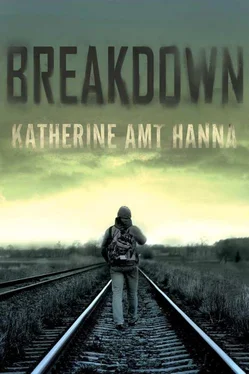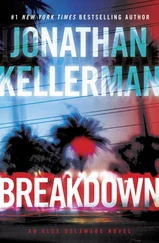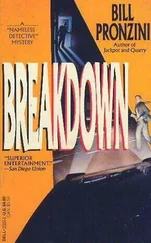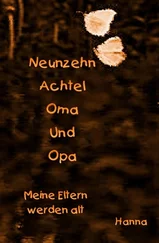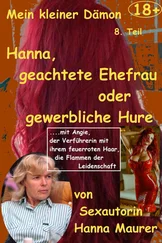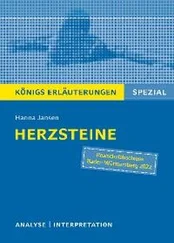Katherine Amt Hanna
BREAKDOWN
January 10, 2000—New York City
I’ve been waiting to die, but I’m not even sick yet. I tell myself I want to die. What’s left to live for? Sophie, my heart, my love, my life, is dead. Rosie, my sweet little baby, my joy, my second love, is gone too. What’s left? A house full of memories.
And a world gone to hell. What’s left to go on for?
I’ve gathered all the pills in the house and put them in a plastic bag, but so far I haven’t taken them. How much worse does it have to get before I can take them? They sit on the counter in the bathroom, with a bottle of water. I look at them each night before I go to bed alone. But I can’t take them.
I want to get sick. I want this to be over.
If you find this, if you know me, and you care, and I’m dead, can you send it to my brother Jon? I’ve taped an envelope with his address inside the front cover. Just tear out the pages with writing and mail them to him. If you can. If there’s still mail going overseas. If there’s still mail at all.
Jon, I hope you are okay. You and Mum and Kevin. The phones don’t work anymore and the electricity is off now. I heard on the news before it went off that Britain was hit hard. Riots in London where Kevin is. I tried to reach him, and you, but I never got through.
I was at the airport when it all started, two days after Christmas, on my way to see you and Mum. There had been some talk of the flu, but they hadn’t banned travel yet. We didn’t think it would come to much. It was just the flu. How many flu scares have there been that never came to anything?
So Sophie drove me to the airport. We took the baby along. Why not? If she’d been older, we all three would have come to visit, of course. I said good-bye to them and got on the plane. I didn’t know I’d never see my baby again.
The plane didn’t take off. The computer problems had started, but they didn’t tell us that then. I got a different flight for the next morning. If I’d known what was happening, I’d have gone home, given up the quick trip to see Mum. The plane actually took off, but then turned around and went back to LaGuardia after two hours. That’s when I knew that things had gone bad and I had to get home, but they wouldn’t let us leave the airport.
They held us there for three days. They said we’d been exposed. What a nightmare. They kept us in one of the lounges, over a hundred of us. They had police with guns outside the door. They passed out masks for us. The television had CNN on. They were talking about the computer problems and the flu thing getting worse. They didn’t know if the cyberattacks were related to each other or not. People getting sick all over the world and staying home, afraid to go out. Everything was shutting down. No one to keep things running. Not enough experts to fix the computers. Bank records wiped out. Military systems in chaos. Telephone networks wrecked. The Internet began to fail. People died by the thousands every day. I watched the world fall apart on CNN. They started calling it the New Plague. Some people said it was deliberate. If someone did this, it must have got out of control, because it seems to have hit every country.
And they said we’d been exposed. I thought I would die there in the airport lounge.
Finally they let us go.
That was New Year’s Eve. Everything had been canceled, of course. Everyone was supposed to stay home. All the buses and trains were stopped. There were no taxis on the streets. Hardly any cars. I had to walk home. No one would give me a ride. Everyone I saw was wearing a mask. There were lines outside the grocery stores. Some places had boarded-up windows. All the restaurants were closed. I couldn’t find a place to eat. I got in a line and got a sandwich at a deli, but it cost nearly all the cash I had. There were police with rifles all over the place. I didn’t get home by dark, and there was a curfew, so I had to hide out in someone’s garage or risk getting shot by police.
And then when I got home, Rosie was gone. My poor little baby. They had already taken her away. I never got to hold her one last time. I never got to say good-bye.
Sophie was dying. I got to see her before she died, but she didn’t wake up. I sat with her, then got in bed with her and held her while she died. My sweet, darling Sophie. There was nothing I could do. I hope she knew I was there with her at the end.
Sophie’s friend Elaine had come when Sophie got sick. She tied a black shirt to the front gate when Sophie died, and a truck stopped. Men in biohazard suits took away my Sophie. No funerals. Too many people sick and dying. I think Elaine was sick when she left. I guess she’s dead by now.
How could this happen? How could everything go bad so fast? God, I miss them. I find myself planning how to keep warm and eat and wait it out, but then I wonder if I even want to. And then at night, when I’m alone in bed, I know I don’t want to. What’s to go on with now that my Sophie and Rosie are gone?
In the mornings I eat something and plan out how to get through the day. I think about Archie’s cabin on the mountain. It must be safer there. I could take all the food and go there. But I don’t want to leave the house and all the things that still have Sophie’s smell. I sleep with one of her sweaters. I sit in the nursery and hold one of Rosie’s little blankets and rock it like it’s her. I can’t leave them.
I guess there’s no chance I’ll ever get back to Bath, now. I wonder how it is over there. I wonder if Mum is okay, and Kevin, and you, Jon. God, I hope you are okay.
Last night I dreamed about Brian. Not a good dream; we were screaming at each other, like the last time I saw him. I think about all of the people I left behind in Britain. I guess it will be a long time before I ever find out what’s happened to them. Maybe it’s better if I don’t know. Then I can pretend that everyone there is okay.
Game Over (excerpt)
(C. Price, 1995)
For all we were connected
Now we’re set against a wall.
We’re divided and dissected
Watch the tilted tower fall.
With the linkage crossed and broken,
On the outs with no regard,
Shallow words grudgingly spoken.
Heads and hearts and faces hard.
August 2006—Bath, England
It was easy to forget, Brian reflected as the bus bumped along bad roads, the hardships and struggles that had brought him to this point. He wondered when he had become happy again. Like a child’s growing up—something that seems impossible to a parent holding a newborn baby—happiness had grown in him, day after day, in unnoticed increments. He glanced down at his son, Ian, dozing against his arm. Fear for his boys’ futures no longer burned in Brian’s heart with hot intensity. It had faded to a glowing ember that flared only if he poked at it.
Beyond the dirty window, the morning sun lit a landscape hardly changed by the desperate winter of six years ago. The changes were more visible in the cities, where panic and rioting had left their mark. Brian had managed, with the help of his brother Simon, to keep his own family safe—his two boys and his wife, Fiona. Not many of the people he knew could say that.
He sighed and shook Ian gently as the buildings of Bath came into view.
The bus pulled into the station just before eight o’clock. Ian shuffled impatiently in the aisle in front of Brian as the other passengers disembarked. They’d had to sit at the back of the crowded bus, and to an eleven-year-old the wait seemed long. Brian cradled a carton of eggs in one hand and rested the other on his son’s shoulder. Ian turned to look at him briefly with his big, dark eyes. A strand of pale hair fell across his forehead, and the boy shook his head a bit to shift it. Brian was struck by the maturity of the look. Since he had started coming into Bath with Brian on market day, Ian had grown more serious, and Brian wasn’t sure how he felt about it. He missed the silly laugh that used to bubble out of his son so easily.
Читать дальше
